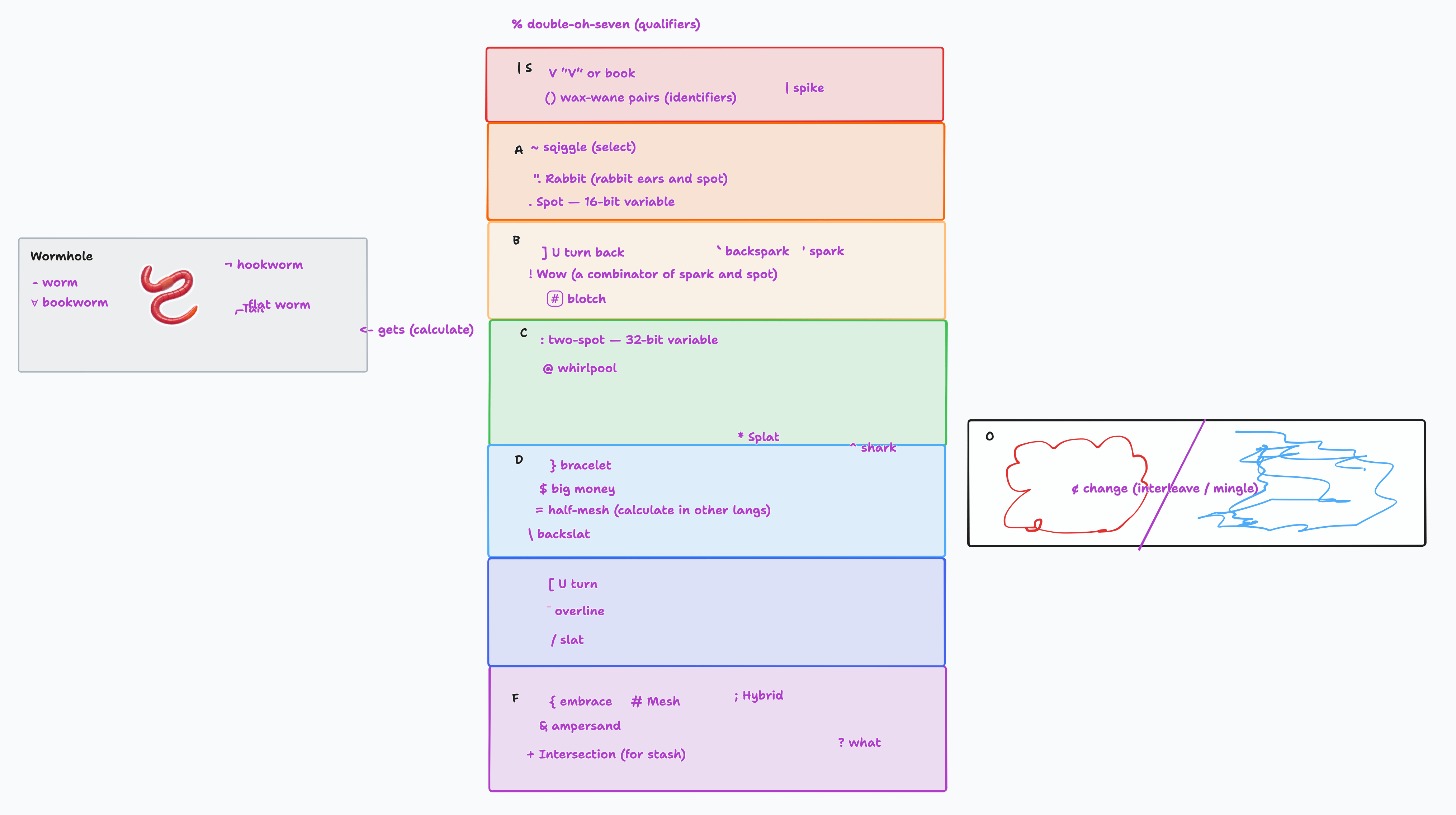64 • INTERCAL by Donald Woods & James Lyon
2023-05-31
Listen in your podcast player by searching for Future of Coding, or via Apple Podcasts | Overcast | RSS
This is a normal episode of a podcast called Future of Coding. We talk about INTERCAL, a real tool for computer programming, and the paper that introduced it to the world. [Do I need to say more? Will this sell it? Most people won’t have heard of INTERCAL, but I think the fake out “normal” is enough to draw their attention. Also, I find “computer programming” funny. Not sure why I put that in quotes.]
Links [at least, the ones I remembered to jot down]
-
The final Strange Loop is coming up this September. Ivan and Jimmy will both be there, though—late breaking news—neither of them will be giving a talk. (“Rocket Rules” apply, if you know what that is.) [Will anyone actually know what “Rocket Rules” is? Will they search for it? That would be sort of embarrassing for me.]
-
If Ivan were to give a programming talk, getting some flood-contaminated gear from DEC or a PDP-11 to use as staging / set dressing might be a challenge. [Yay, another retread of my personal history. Maybe instead of dredging up my past I should be the sort of person who makes new things, like, ever.]
-
Meowmeowbeenz [Gah this show hasn’t aged well. At least I’m sticking to the whole “high-brow + low-brow” personal identity by including the reference to it. [Is “meta” low-brow at this point?]]
-
There’s lots of talk about esolangs (esoteric programming languages), so it’s worth linking the Esolang Wiki. [I worry that we spent too much time focusing on surface syntax. Jimmy tried to get us to talk about the beautifully-weird semantics within INTERCAL, but we never fully went there. I’m sure some people will complain about this lack of depth. Not looking forward to that.]
-
In particular, Brainfuck, which Jimmy adorably refers to as “BF” because he’s a polite gentleman and Ivan is 2% South Park. [Laughing at my own joke.]
-
Also, Shakespeare and Shakespeare: vaulting ambition, Out, damned spot, both from the Scottish play (you don’t know where I am, don’t @ me). [Why are these in the show notes? Am I trying to signal some sort of theatre-literacy? Who cares?]
-
“COMEFROM was eventually implemented in the C-INTERCAL variant of the esoteric programming language INTERCAL” [Considering that this was such a non-element in the original paper, it’s weird that it became such a cornerstone of the episode. “What if we recreated the spirit of the paper in the podcast itself” is a tall order, so I guess we did what we could with what we had. Also, I bet someone is going to object that the paper and language aren’t actually very meta, especially not multiple layers deep, to which I’ll reply: we all bring the flavour of our mouth to the soup we taste.]
-
Exapunks… Yeah! [Speaking of things that haven’t aged well… woof. I like our newer episodes better. Especially this one. THAT’S JUST BAIT FOR THE PEOPLE WHO WILL COMPLAIN THAT THIS SHOW HAS GONE OFF THE RAILS, PLEASE DO CONTINUE TO LISTEN TO THE SHOW.]
-
Our tier list was created in tldraw, because it’s the best. [I wish someone applied Steve-and-co’s eye for detail to a visual programming tool. I wish I had time.]
-
The excellent Advent of Computing podcast did an episode on INTERCAL. (Aside: the AoC website seems a bit busted in non-Chrome browsers, so here’s a backup YouTube link, but you can also just search for Advent of Computing in your podcast player of choice.) [AoC is the exception that proves the rule: there are no high-quality programming podcasts. They all seem so low-effort, made by people who don’t respect the listener’s time and attention. Or they’re aping the high-budget NPR style, with no personality. Also, audio quality is all over the map. Also, just the worst garbage ads and theme music, all of them! I wonder if it’s just a cost-benefit time/energy tradeoff, or maybe people don’t know how to do better? I wonder what we could do to help raise the bar, without opening ourselves up to a bunch of “well I don’t like your podcast either” presumed competitiveness.]
-
The video Screens in Screens in Screens is fantastic, and the sort of thing that deserves our support. Also, Lu Wilson (the human behind TodePond) has their own programming language that will not be named on podcasts, DreamBerd, which uses the
!to great effect. [Meta-commentary intentionally left blank.]
Some of the music featured in this episode:
- All Caps by MF DOOM and Madlib [I don’t even like it when other podcasts include music clips, but then away I go needle-dropping like I’ve got something to prove.]
- Various songs from Ivan’s old albums. [I need to update my website. I need to tweak my static site generator. I need to redesign all the CSS. I need to consider putting all my projects into a database so I can generate nicer indexes. I also need to make some new projects — especially music.]
Get in touch, ask us questions, send us the sound of your knuckles cracking:
- Ivan: Mastodon • Email [If you don’t have something nice to say, know that I’m very sensitive and nurse wounds for a long time. Also, Nurse With Wound is great.]
- Jimmy: Mastodon • Twitter [Jimmy doesn’t write these notes so I don’t know what he’s thinking, but I can imagine: a horse galloping in the wind, Jimmy riding shirtless on the horse, Jimmy holding a gigantic tome of philosophical wisdom in one hand, the other outstretched before him, words of revelation flowing from his mouth like honey, “Ivan, the setup to this joke was lame”]
- Or just DM us in the FoC Slack. [<3]
